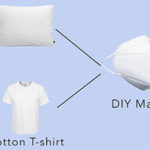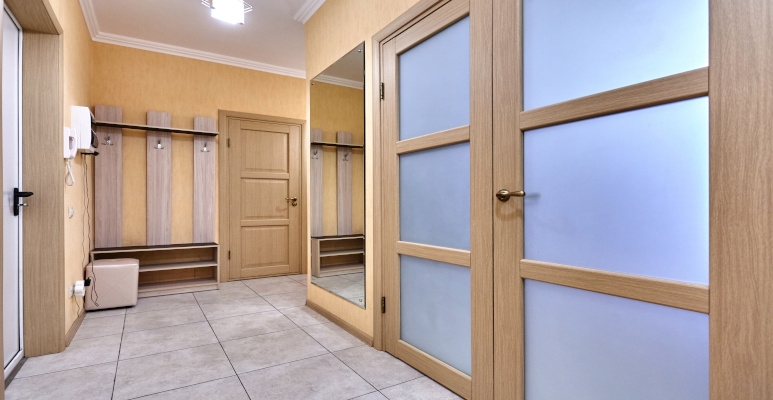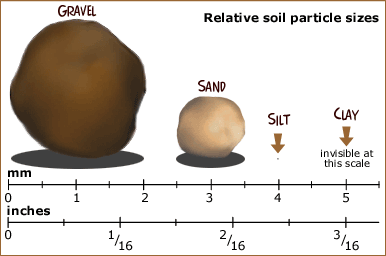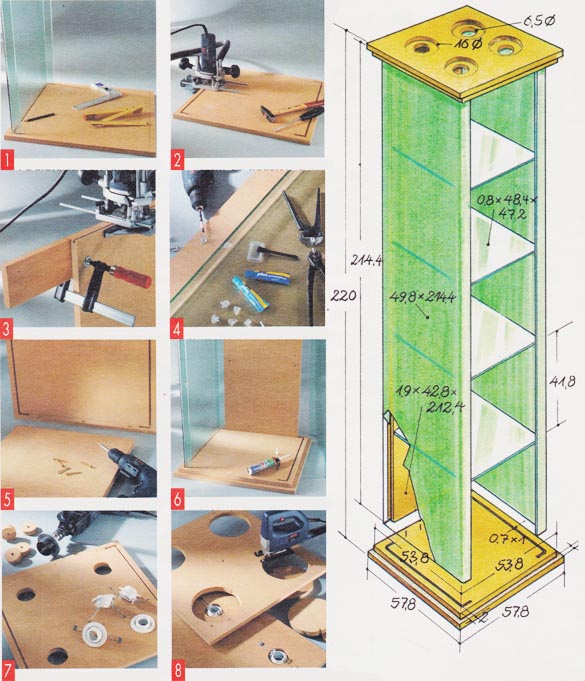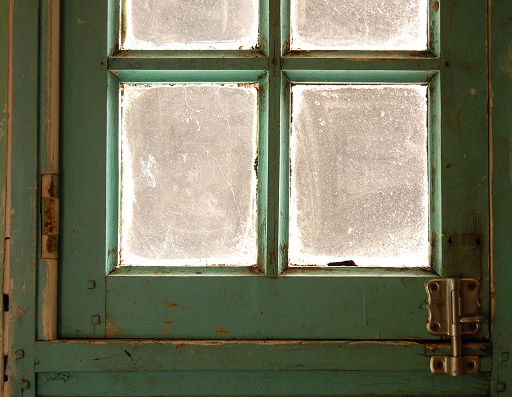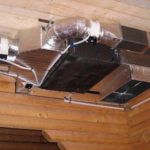Czy domowe maski zrobione samemu ochronią nas przed koronawirusem?
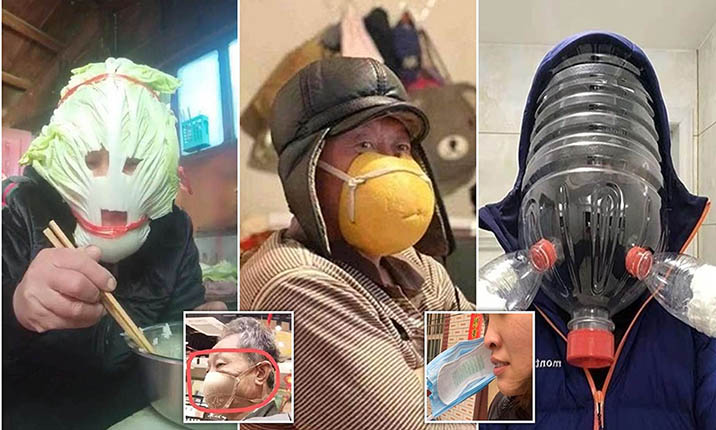
Własna maska na zanieczyszczenia powietrza w celu ochrony przed wirusami brzmi jak szalony pomysł. Dane pokazują, że maski działają niesamowicie dobrze , a ponadto są naprawdę tanie. Maska chirurgiczna kosztuje zaledwie kilka złoty i jest w stanie odfiltrować 80% cząstek do 0,007 mikrona (14 razy mniejszych niż koronawirus).
Jednak wybuch koronawirusa (Covid-19) w 2019 r. przyniósł ze sobą nowy problem: większość masek jest wyprzedane.
Ludzie robią własne maski, ale czy domowe maski naprawdę mogą ochronić cię przed koronawirusem? Smart Air przeanalizował dane, aby uzyskać odpowiedź.
Test maski zrobionej w domu – DIY.
Naukowcy z University of Cambridge zadali właśnie to pytanie w następstwie pandemii grypy H1N1 z 2009 roku. Myśleli, że w globalnym scenariuszu pandemii może zabraknąć masek N95. Ich prognozy się sprawdziły podczas wybuchu koronawirusa.
Naukowcy poprosili ochotników o wykonanie własnych masek przy użyciu bawełnianych koszulek i maszyny do szycia, przy użyciu prostych materiałów który mieli do dyspozycji. Następnie porównali swoją skuteczność z maskami chirurgicznymi przy filtrowaniu cząstek tak małych jak 0,65 mikrona.
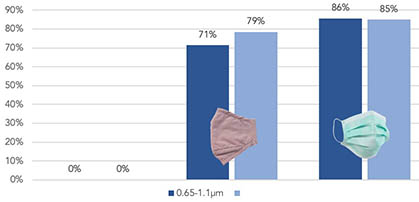
Zrobione domowym sposobem bawełniane maski wychwytują 71% cząstek 0,65-1,1 mikrona, w porównaniu z 86% dla maski chirurgicznej. Chociaż maski chirurgiczne wychwytywały o 15% więcej cząstek, maski bawełniane działają zadziwiająco dobrze. Naukowcy doszli do wniosku, że domowe maski byłyby lepsze niż nic.
Co z cząstkami mniejszymi?
Dane z Cambridge pokazują, że domowe maski mogą odfiltrować niektóre cząstki o wielkości 0,65–1,1 mikrona. To całkiem nieźle, jednak większość wirusów jest mniejsza, a koronawirus ma 0,1 mikrona. Grupa naukowców z Holandii przetestowała domowe maski wykonane ze ścierki do naczyń dla mniejszych cząstek, które są bardziej podobne do wirusów.
Zbadali, jaki procent cząstek mogą przechwycić maski dla cząstek nawet mniejszych niż badacze z Cambridge: od 0,02 do 1 mikrona. Użyli maszyny do testów dopasowania, aby przetestować maski, tak jakby ludzie je nosili.
Maska ze ścierki do naczyń wychwytuje 60% nawet mniejszych cząstek o wielkości 0,02-1 mikrona. Nic dziwnego, że maska chirurgiczna i maska N95 wychwytują więcej cząstek, ale dane pokazują, że maska domowa była daleka od bezużytecznej przy wychwytywaniu cząstek wielkości wirusa.
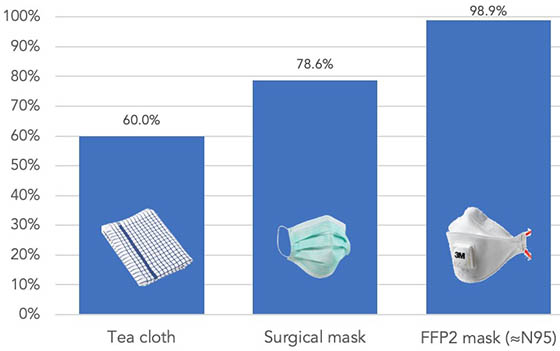
Jak długo możesz nosić maski własnej roboty?
Następnie przetestowali skuteczność masek po tym, jak ludzie nosili je przez 3 godziny. Wyniki wykazały, że wilgoć i czas miały bardzo niewielki wpływ na skuteczność którejkolwiek z masek.
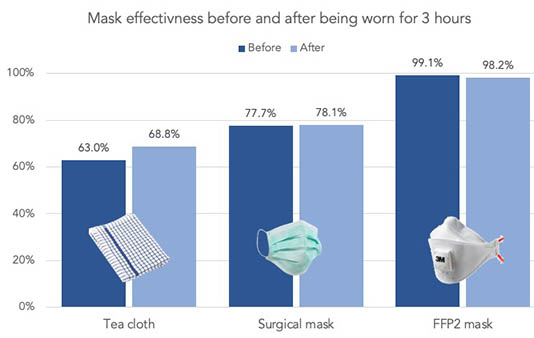
W rzeczywistości domowe maski faktycznie stały się o 5,8% skuteczniejsze w filtrowaniu cząstek wielkości wirusa po 3 godzinach. Z tego możemy wywnioskować, że noszenie domowych masek przez kilka godzin nie zmniejszy ich skuteczności.
Jak dobrze domowe maski działają u dzieci?
Następnie przetestowali domowe maski z 11 dziećmi w wieku od 5 do 11 lat. Kiedy dzieci nosiły domowe maski, usunęły zaledwie 52% cząstek o wielkości 0,02–1 mikrona. To prawie 15% mniej skutecznie u dzieci niż u dorosłych.
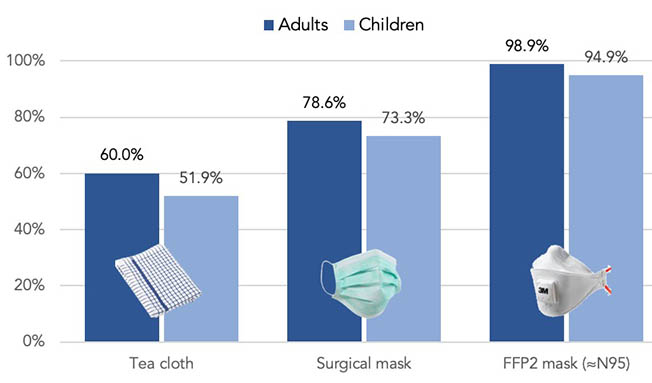
Konkluzja na temat samodzielnego zrobienia własnej domowej maski do walki z wirusami.
Dane pokazują, że domowe maski wykonane z pojedynczej warstwy bawełnianego ubrania lub ściereczki mogą usuwać około 50–60% cząstek wielkości wirusa. Oznacza to, że działają gorzej niż maski chirurgiczne i maski FFP2 (N95). Noszenie domowych masek przez 3 godziny nie miało znaczącego wpływu na wydajność filtracji.
Maski DIY działają również dla dzieci, jednak są mniej skuteczne u dzieci niż u dorosłych.

